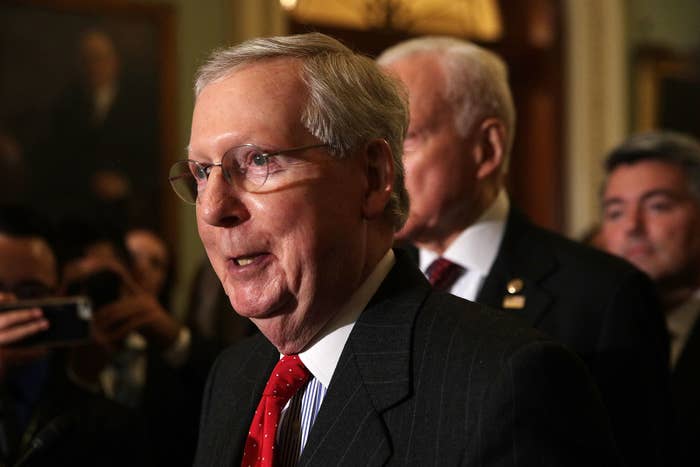
The Republican tax bill, which would overhaul the tax system to vastly reduce the tax rates paid by corporations permanently and temporarily cut taxes for many normal taxpayers, has reached its final form, with the House and Senate agreeing on a bill that they plan to vote on next week.
The conference bill that came out of negotiations between the two chambers is broadly similar to the legislation that passed the Senate at the beginning of the month. Two of the most significant changes from either original bill are the income tax rates paid by wealthy individuals and how generous the child tax credit is.
The original House bill reduced the current seven income tax brackets to four, with the top rate staying at 39.6%, while the bill passed by the Senate cut the top rate to 38.5%. The conference bill slashes the top rate to 37% and has that rate kick in at $600,000 for joint filers and $500,000 for single filers, compared to the current cutoff at a bit over $400,000 for single filers and $480,000 for joint filers.
The combined bill also puts the corporate tax rate at 21%, while the first House and Senate legislation put it at 20%, down from the 35% rate today.
Many of the controversial provisions in the House bill, like eliminating the tax credit for adoptive parents or getting rid of the ability of graduate students to waive their tuition from their taxable income, were stripped out of the conference bill.
And after a brief scare for leadership this week, the bill is now virtually certain to pass the Senate, after getting 51 of 52 possible Republican votes and with no Democrats supporting it the first time.
On Thursday, Sens. Marco Rubio and Mike Lee said there were respectively opposed to or undecided on the bill if it didn't include a more generous child tax credit for low-earning parents.
To address those concerns, the new bill includes the original Senate bill's boost of the tax credit per child up to $2,000, but it makes $1,400 of that "refundable," meaning it gets paid to parents even if they have no income tax liability. The original Senate bill made only $1,100 of the credit refundable.
Rubio, in response, declared his support for the bill Friday, and Lee's spokesman said that the senator would "hopefully" support the bill and was encouraged by the work done in the conference to beef up the child tax credit.
Another key senator, Bob Corker, the only Republican to oppose the original Senate bill, also said Friday he would vote for the conference version. Corker voted against the original bill because he was concerned over how much it would add to the deficit, and he did not say if the new bill specifically changed to address those concerns.
Sens. Susan Collins and Jeff Flake, who both supported the first bill in the Senate, have not yet said how they will vote on the combined bill. They could both oppose it however, and the bill could still pass with Vice President Mike Pence casting a tie-breaking vote.
